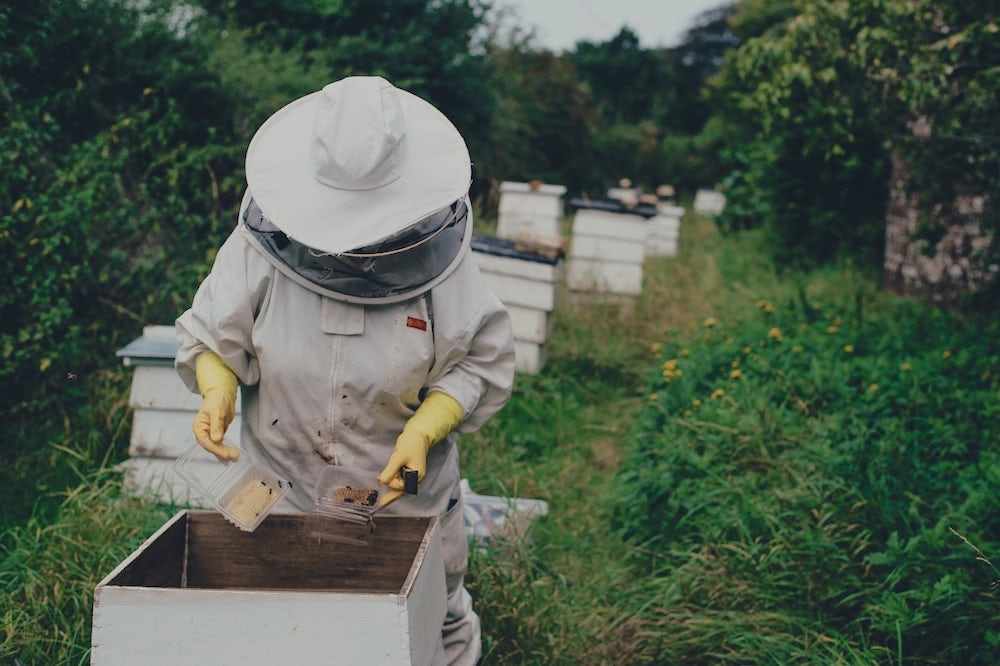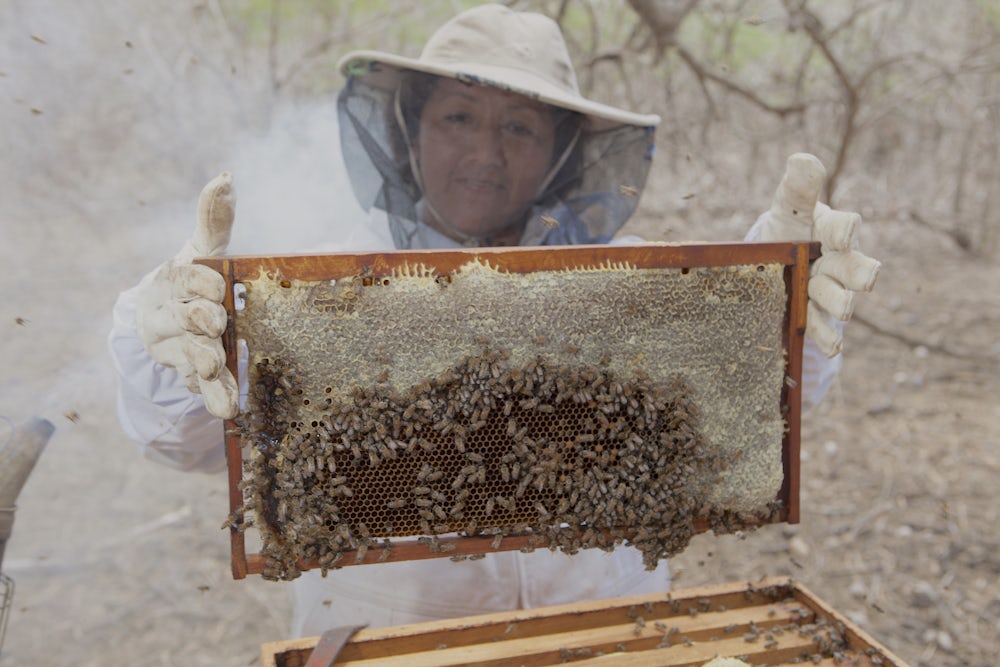It’s no secret that bees are struggling. Colony collapse disorder, insecticide use and loss of habitat are wreaking havoc on global pollinator populations. It’s gotten so bad that, in the United States alone, beekeepers are now projected to lose 40 percent of their hives each year. And, if that weren’t enough to reckon with, Californian hives are facing an additional menace: bee rustlers. That’s right … bee rustlers.
In California’s Central Valley, pollination is a booming business. Central Valley is one of the world’s most productive agricultural regions and produces more than a quarter of all U.S crops each year. It also produces 80 percent of the world’s almonds. All those crops need a lot of pollinating – 2.8 million hives’ worth, in fact, and that’s way more than native bee populations can manage. And so the almond trees make honeybees a hot commodity during peak seasons, especially in February when the almond trees bloom. In fact, that time of the year is so busy for pollinators-for-hire that it’s nicknamed the “Superbowl of Beekeeping.” Beekeepers around the country bring their hives to Central Valley, and at $200 a hive, it’s good money. But it’s also a perfect setting stage for bee crime — namely, kidnapping.

So, how do you steal millions of angry bees? With a little special equipment and a lot of know-how. Rustlers can either sneak into almond orchards at night or purloin hives that are in transit to their final destination. Using special forklifts and hive-specific trailers, they whisk them away where they hastily chop and screw various boxes into new and unrecognizable hives, sometimes killing thousands of bees in the process. And these thefts aren’t just damaging to the vulnerable pollinator but are often devastating to the beekeepers who own the hives. For example, Lloyd Cunniff, a third-generation bee farmer, brought 448 hives filled with billions of bees to California in 2017 only to have them all stolen after he left them, as directed, in a holding area overnight. The theft resulted in a $100,000 loss for Cunniff as well as a loss of his livelihood. And Cunnif is one case out of hundreds annually.
Because bees aren’t easy to handle and so much special equipment is needed to move them, Butte County Deputy Sheriff Rowdy Jay Freeman believes the crimes are carried out by fellow beekeepers looking to capitalize on the demand. Nicknamed the Bee Detective, Freeman is a member of California's Rural Crime Prevention Task Force and is a beekeeper himself.
“It’s the perfect crime,” said Freeman to National Geographic. “You see a person in a white suit, and it looks like a beekeeper, but it could be a thief too — you’d never know.”

Without bees and other pollinators, 80 percent of the world’s plant life would cease to exist. We need bees. And bees need us now more than ever. Help declining bee populations by donating a hive to a beekeeper or supporting sustainable, eco-friendly farming. By supporting Heifer International’s work with beekeepers, you can do both.
